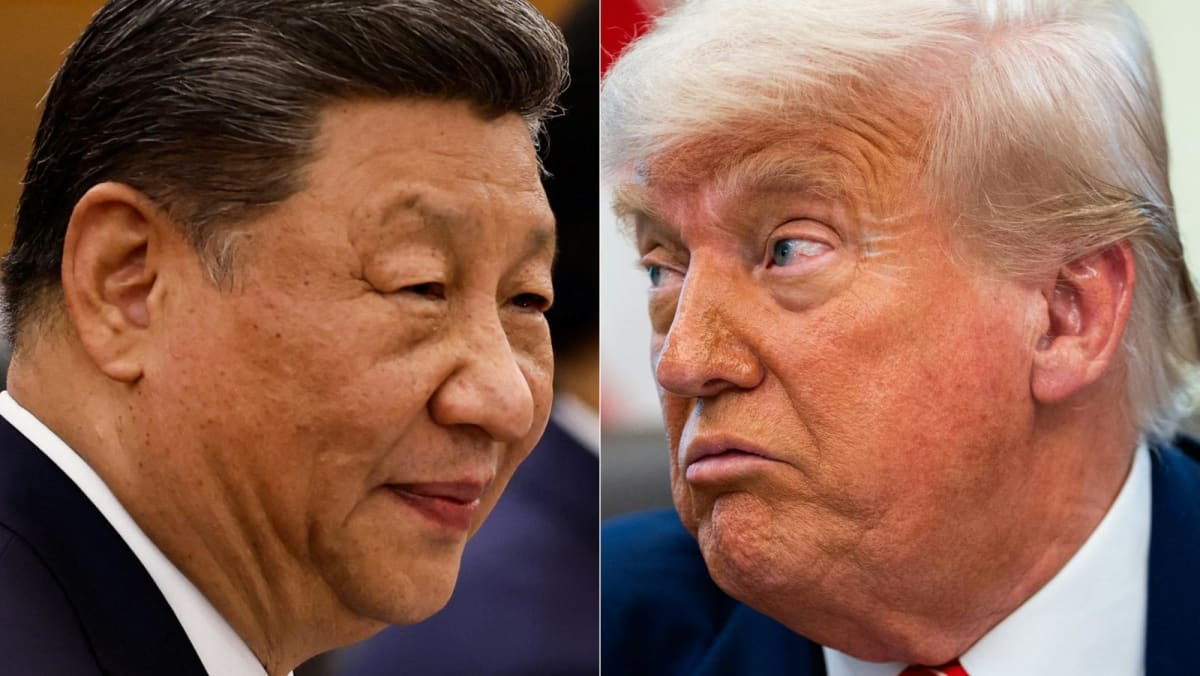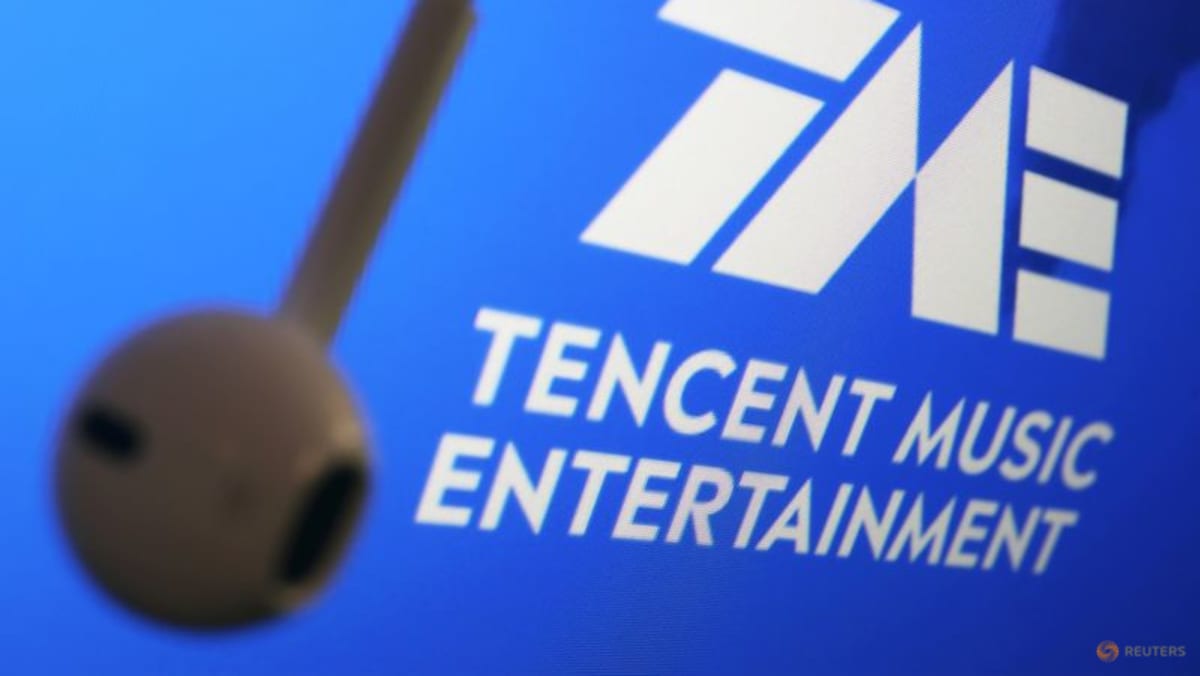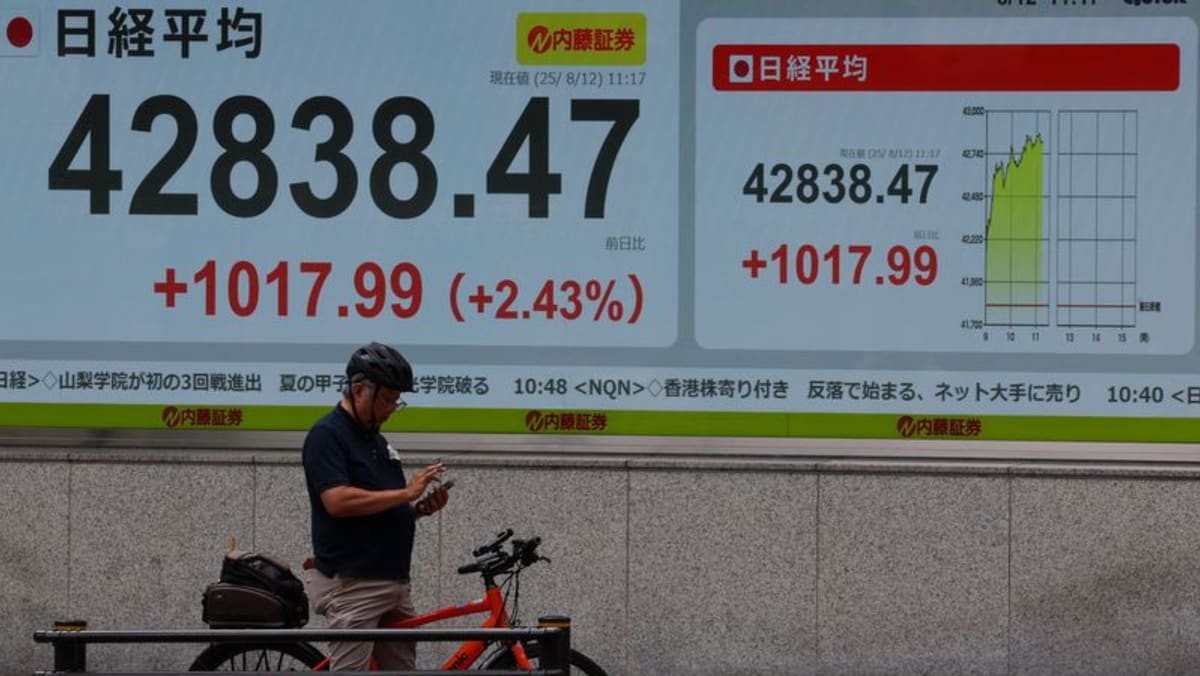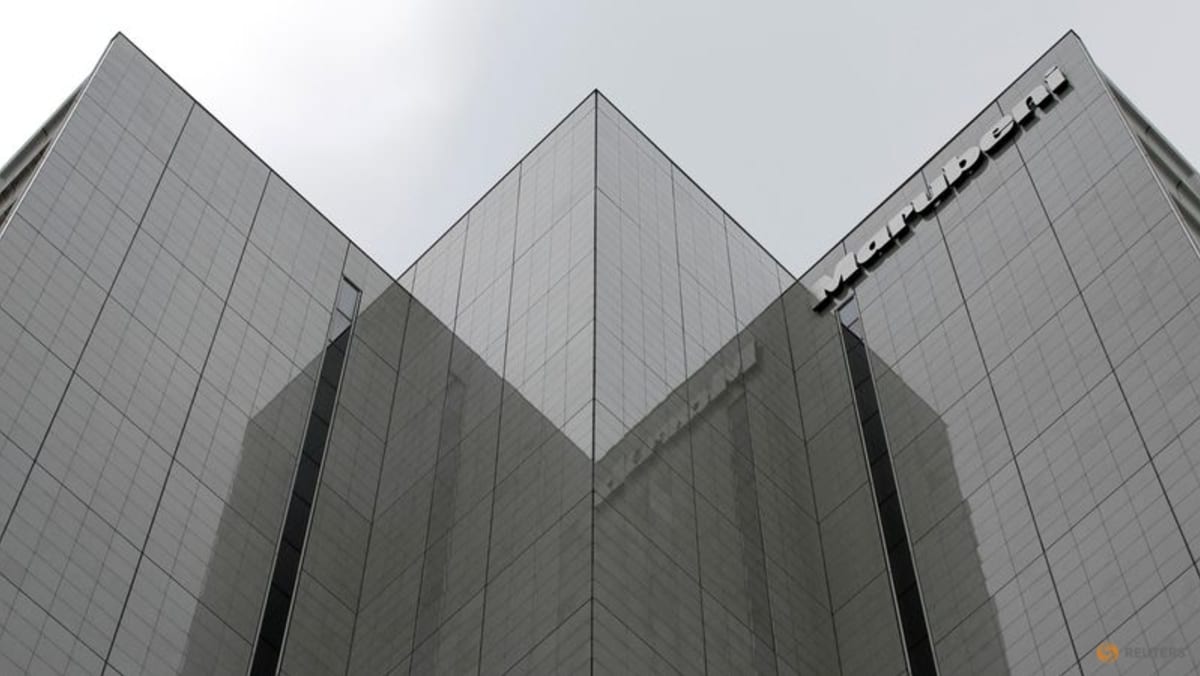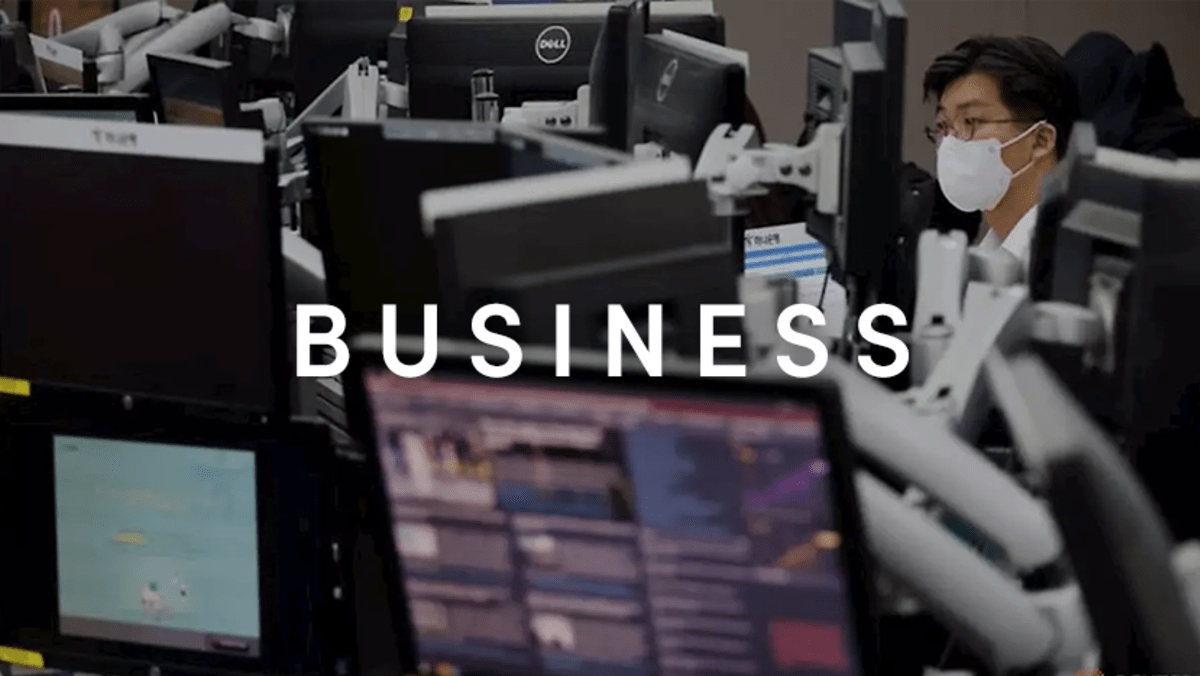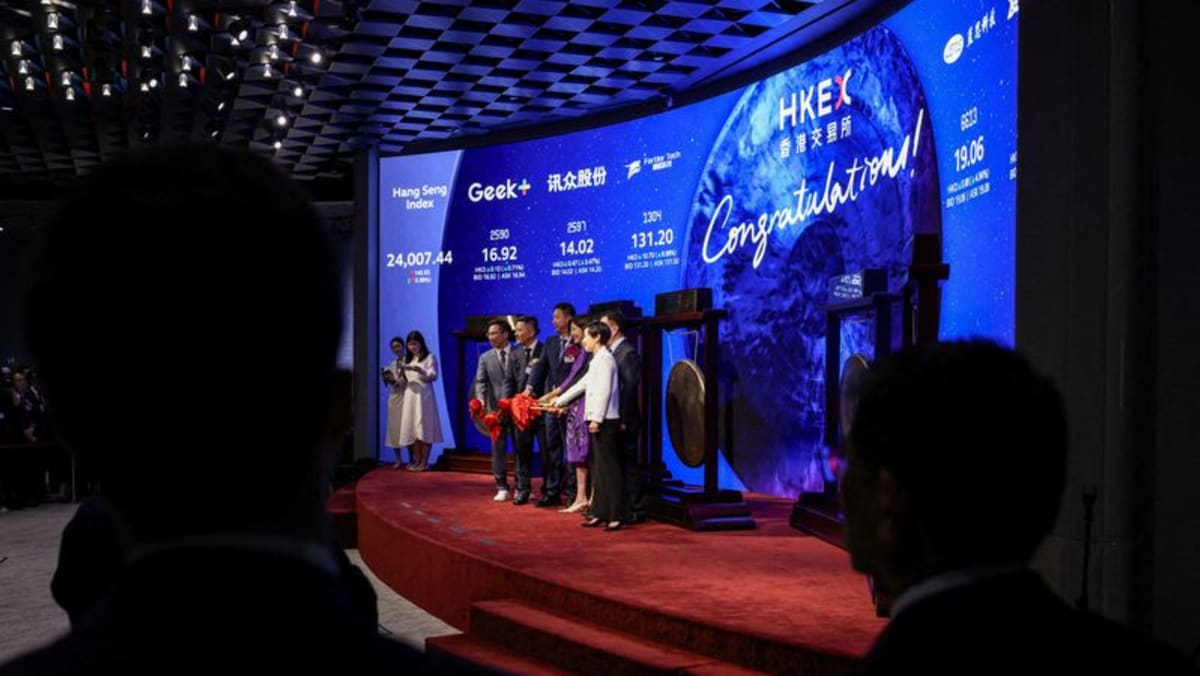TOKYO: Japan’s Nikkei share gauge powered to an all-time high on Tuesday (Aug 12), driven by sharp gains for tech companies and renewed optimism over trade with the United States.
With financial markets reopening after a holiday in Japan on Monday, the stock benchmark caught up with peaks scaled earlier this year by other major global centres.
The Nikkei 225 surged 2.46 per cent to 42,849.67 as of the morning close, exceeding the previous high of 42,426.77 set on July 11, 2024.
In a roller-coaster ride in 2024, the Nikkei had exceeded a record that had stood since 1989 during Japan’s bubble economy. Japan’s broader Topix gauge has been setting successive record highs since Jul 24 and also scored a new all-time high on Tuesday, rising 1.45 per cent to 3,067.96.
The US Standard & Poor’s 500 and MSCI’s broadest gauge of global equities have been charting new peaks since June.
“The Nikkei was not able to hit a record until today because chip-related shares and auto shares dragged the index,” said Takamasa Ikeda, senior portfolio manager at GCI Asset Management. “The Nikkei could soon peak as technology shares that led the Wall Street’s rally have slowed down.”
SoftBank Group soared 6.9 per cent after Reuters reported the conglomerate was selecting banks for a US listing of its payments app operator PayPay. Semiconductor industry heavyweights Advantest and Lasertec jumped 7.1 per cent and 6.9 per cent, respectively.
Global stock markets tumbled after US President Donald Trump’s Apr 2 “Liberation Day” announcement of sweeping tariffs on imports from dozens of countries into the US Shares have since more than recouped those losses as trade concerns abated and enthusiasm over artificial intelligence companies soared.
Uncertainty over tariff levels imposed by the US has weighed on shares in Japan, where exports are a key driver for the economy. The US on Thursday promised to amend a presidential executive order to remove overlapping tariffs on Japanese goods.
“The impact of US tariffs seems not as serious as the market had expected,” said Shoichi Arisawa, general manager of the investment research department at IwaiCosmo Securities.
“There will be more companies which will revise up their outlooks due to the limited impact of the US tariffs. The yen remains weak, which is also positive for Japanese companies.”
Foreign money has been flooding into the Japanese market of late, but data from the Tokyo Stock Exchange last week indicated those flows may have peaked.
Overseas investors turned net sellers of Japanese stocks and futures for the first time in 16 weeks in the period ending Aug 1. They sold a net ¥342 billion (US$2.31 billion) of shares and futures, a sharp reversal from net purchases of ¥1.26 trillion in the previous week.

